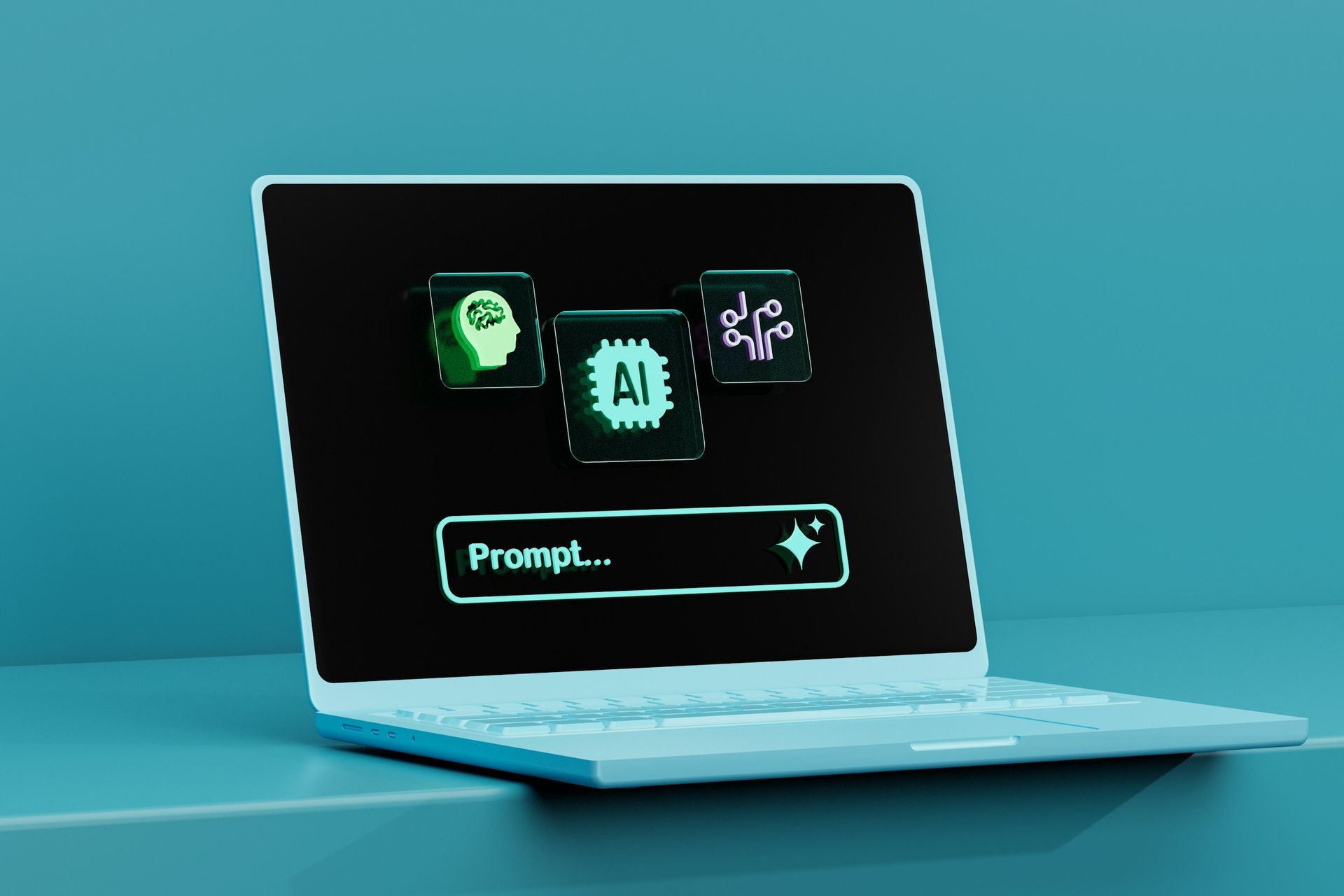Transforming Learning, Administration, and Accessibility

Introduction
Artificial Intelligence (AI) is transforming industries worldwide, and education is no exception to this significant and far-reaching trend. By enabling personalized learning experiences tailored to the unique needs, strengths, and abilities of each individual student, AI allows for a more effective and engaging educational journey that fosters deeper understanding and retention of knowledge. Moreover, it helps streamline a variety of administrative tasks, freeing up valuable time for educators to focus on teaching, mentorship, and student interactions rather than getting bogged down in paperwork and routine management. Additionally, AI plays a crucial role in fostering inclusive classrooms by providing adaptive learning technologies that support diverse learners, ensuring that every student, regardless of their background or learning style, has access to the resources they need to succeed. With these innovative and powerful tools at their disposal, educators and institutions alike can leverage AI to create dynamic learning environments. This offers a compelling promise to not only enhance individual educational experiences but also to redefine the future of education in ways we are only beginning to understand and explore..
Personalized Learning
One of AI's most significant contributions to education is its ability to deliver personalized learning experiences. AI-powered platforms like Khan Academy and Duolingo analyze students' strengths and weaknesses to adapt lessons accordingly. For example, adaptive learning systems can identify gaps in knowledge and provide tailored exercises to address them. Moreover, AI-based tutors such as Socratic by Google use natural language processing to help students solve problems by explaining concepts step-by-step. This tailored assistance ensures learners progress at their own pace, fostering deeper understanding.
AI is also enhancing personalized learning through advanced data analysis and predictive modeling. By analyzing large datasets, AI can anticipate learning patterns and recommend customized learning pathways. For example, AI can identify when a student is losing focus or struggling with a particular concept and adjust the lesson format or pace accordingly. This dynamic, real-time adjustment ensures that students receive the right level of challenge and support. Furthermore, AI-driven platforms can integrate gamification and interactive content to increase motivation, making learning more engaging and effective for each individual
Streamlined Administrative Tasks
Educators often face heavy administrative workloads, which can detract from teaching. AI tools like Grammarly and Turnitin automate grading, plagiarism detection, and feedback provision, saving time and improving accuracy. AI also assists in scheduling, attendance tracking, and resource management. For instance, platforms such as PowerSchool centralize administrative tasks, enabling teachers and school administrators to focus more on students' needs.
AI is significantly transforming administrative efficiency in education by automating time-consuming tasks and streamlining processes. Beyond grading and plagiarism detection, AI-driven platforms assist with curriculum planning, substitute teacher management, and exam scheduling. For example, Edmodo and Canvas use AI to organize lesson plans, adjust class schedules based on availability, and provide real-time progress reports to teachers and parents. AI-based communication tools like Remind help streamline parent-teacher interaction by automating updates and reminders. Moreover, AI can analyze student attendance patterns and predict potential issues, allowing schools to proactively address absenteeism. This automation enables educators to dedicate more time to instructional quality and student engagement
Fostering Inclusivity
AI makes education accessible for students with diverse needs. Tools like Microsoft Immersive Reader and Text-to-Speech help students with visual impairments or dyslexia by reading text aloud or translating materials into other formats. Additionally, AI-powered sign language interpreters and real-time translation tools, such as Google Translate, break down language barriers, allowing students from different linguistic backgrounds to participate fully in learning activities.
AI is fostering inclusivity by tailoring educational content to meet diverse learning needs and styles. Advanced AI tools, like Otter.ai and Ava, provide real-time transcription for students with hearing impairments, ensuring full participation in classroom discussions. Adaptive learning platforms can modify content delivery based on cognitive profiles, providing simplified explanations or visual aids for students with learning disabilities. AI-powered chatbots offer multilingual support, enabling non-native speakers to receive instant feedback in their preferred language. Furthermore, AI-driven analytics help educators identify at-risk students early, allowing for timely interventions and personalized support to close achievement gaps
AI in Higher Education
In higher education, AI facilitates research and professional development. Tools like Mendeley and EndNote simplify reference management, while platforms like Coursera and edX offer AI-curated courses to help learners acquire new skills. Universities are also leveraging AI to enhance campus life. Chatbots like Ivy.ai assist students with questions about enrollment, financial aid, and course availability, ensuring timely support.
AI is also transforming the student learning experience and academic performance tracking in higher education. Universities are using AI-driven platforms to analyze student engagement, predict academic challenges, and recommend targeted interventions. For example, Predictive Learning Analytics platforms identify students at risk of failing and provide tailored resources to improve outcomes. AI is also enhancing career services by matching students with internships and job opportunities based on their skills and interests. Furthermore, AI-powered virtual reality (VR) and augmented reality (AR) platforms are being integrated into coursework to create immersive learning experiences, helping students understand complex concepts more effectively
Ethical Considerations
Despite its advantages, AI in education raises ethical concerns. Privacy and data security are critical, as AI relies on collecting and analyzing large amounts of student data. It is essential to adopt robust policies and technologies to protect this data. Moreover, over-reliance on AI may inadvertently reduce human interaction in learning, which is crucial for developing social and emotional skills. Balancing AI integration with traditional teaching methods is vital.
AI's role in education also raises issues of bias and fairness. AI algorithms are trained on existing data, which may reflect historical biases in race, gender, or socioeconomic status. If not properly managed, these biases could lead to unequal treatment or reinforce stereotypes. For example, an AI-powered admissions tool might inadvertently favor students from privileged backgrounds due to biased training data.
Moreover, there is the question of transparency and accountability. Educators and institutions must understand how AI models make decisions and have mechanisms to address errors or unintended consequences. The growing use of AI in grading and student evaluation requires oversight to prevent misjudgment or unfair outcomes.
Algorithmic bias also extends to language and culture. AI translation tools, for instance, may struggle with context-specific nuances, leading to miscommunication and misunderstanding in diverse classrooms. Furthermore, AI-generated content raises concerns about intellectual property and the authenticity of student work. Ensuring that students are engaging in meaningful learning rather than relying on AI to produce assignments is critical.
Emotional intelligence and social learning are also at risk. Over-reliance on AI-driven tutoring and feedback systems could limit opportunities for students to develop soft skills like empathy, communication, and conflict resolution. Blending AI with peer learning and teacher interaction helps to maintain a balanced educational experience.
Finally, there is the challenge of economic disparity. AI-powered learning tools are not equally accessible to all institutions or students due to infrastructure and cost limitations. Closing this gap requires strategic investment in affordable AI solutions and equitable access to technology across different regions

The Future of AI in Education
The potential for AI in education continues to grow. Emerging technologies like augmented reality (AR) and virtual reality (VR) are combining with AI to create immersive learning experiences. For example, platforms like zSpace allow students to interact with 3D models, enhancing subjects like anatomy and engineering. AI-driven analytics also promise to improve educational outcomes. By analyzing large-scale data, institutions can identify trends, optimize curricula, and predict student performance, enabling proactive interventions. The integration of Artificial Intelligence (AI) into education has been transformative, offering personalized learning experiences, automating administrative tasks, and enhancing accessibility. However, recent developments have highlighted critical challenges that necessitate careful consideration.
Academic Integrity and AI Misuse
The rise of AI tools like ChatGPT has sparked concerns about academic dishonesty. A notable incident at Yale University involved a student suing the institution after being suspended for allegedly using AI on an exam, raising questions about due process and the reliability of AI detection methods. This case underscores the need for clear guidelines on AI usage in academic settings to maintain integrity while embracing technological advancements.nhregister.com
Educator Preparedness and Training
While AI holds promise for enhancing education, a survey by Teach Plus revealed that only half of the educators feel adequately trained to integrate AI into their teaching practices. This gap in preparedness can hinder effective AI implementation and exacerbate educational inequalities. Comprehensive professional development programs are essential to equip teachers with the necessary skills to utilize AI tools effectively.myjournalcourier.com
Bias and Fairness in AI Applications
AI systems trained on biased data can perpetuate existing inequalities. For instance, if an AI-powered admissions tool is trained on data that reflects historical biases, it may favor certain demographics over others, leading to unfair outcomes. Continuous efforts to identify and mitigate biases in AI algorithms are crucial to ensure equitable educational opportunities for all students.
Transparency and Accountability
The "black box" nature of many AI systems poses challenges in understanding their decision-making processes. Educators and students may find it difficult to trust AI recommendations without clear insights into how conclusions are drawn. Developing transparent AI models with explainable outputs is vital to build trust and allow for accountability in educational contexts.
Economic Disparities and Access to AI
The benefits of AI in education may not be evenly distributed, particularly in under-resourced schools lacking the infrastructure to support advanced technologies. This digital divide can widen existing educational gaps. Investments in affordable AI solutions and equitable access to technology are necessary to prevent further disparities.
Environmental Impact of AI Technologies
The deployment of large-scale AI systems requires substantial energy and resources, raising environmental concerns. Educational institutions must consider the ecological footprint of implementing AI technologies and strive for sustainable practices.
In conclusion, while AI offers significant potential to revolutionize education, addressing these ethical considerations is imperative. Balancing technological innovation with ethical responsibility will ensure that AI serves as a tool for enhancing learning without compromising the values fundamental to education.
Conclusion
AI is a game-changer for education, offering unprecedented opportunities to enhance learning, streamline operations, and promote inclusivity. However, as we integrate AI into classrooms, it is crucial to address ethical challenges and ensure that technology complements, rather than replaces, human teaching.
Discover how UniHouse’s AI-powered solutions can enhance your institution’s learning outcomes, streamline operations, and foster inclusivity.
Contact UniHouse today to explore tailored AI strategies



